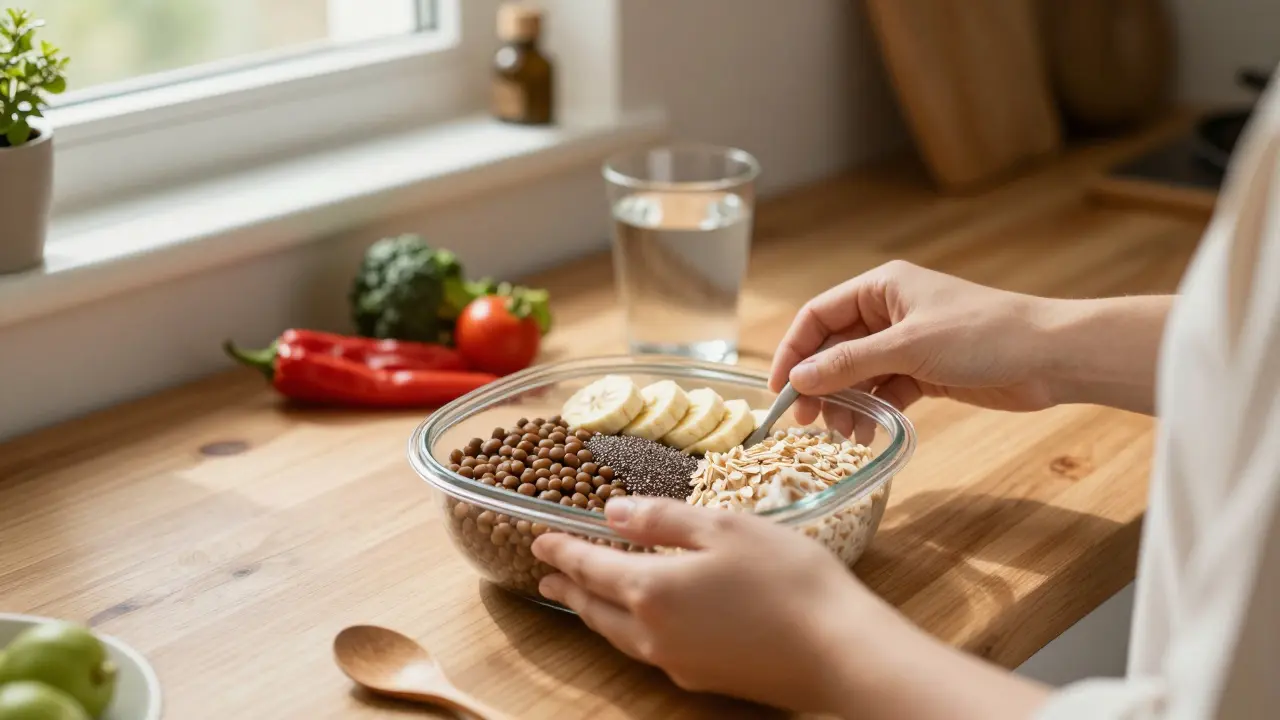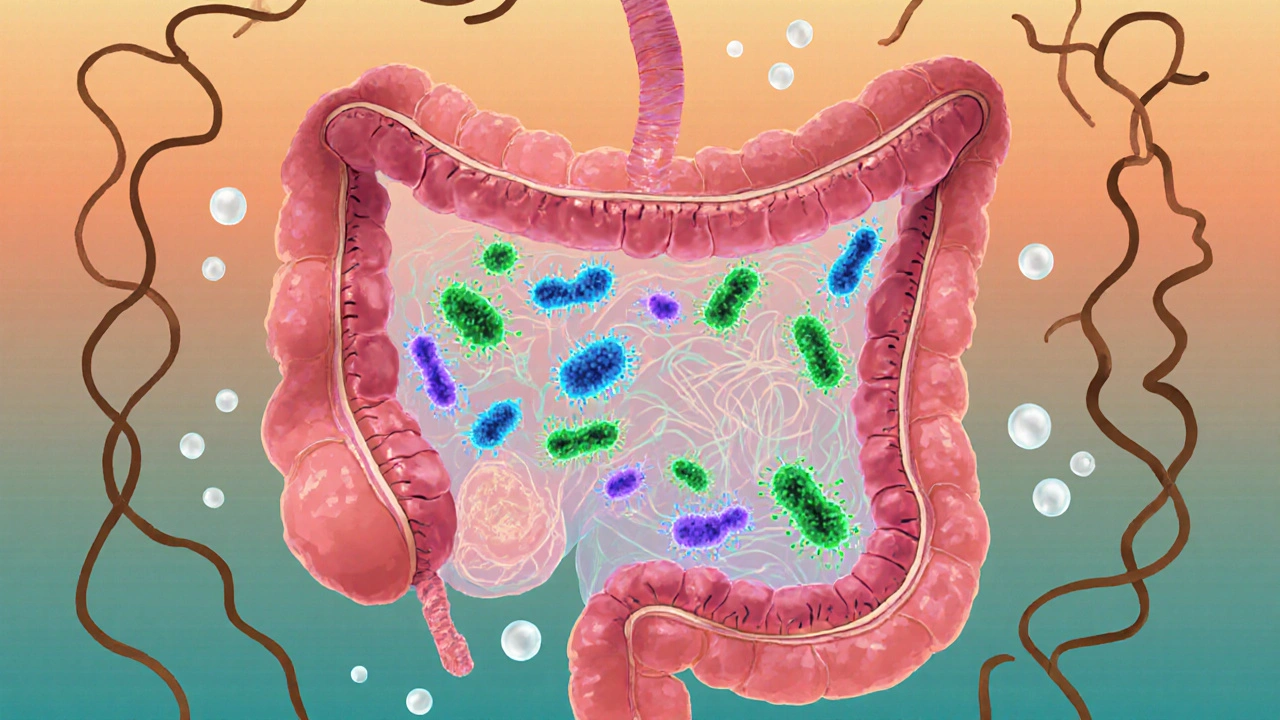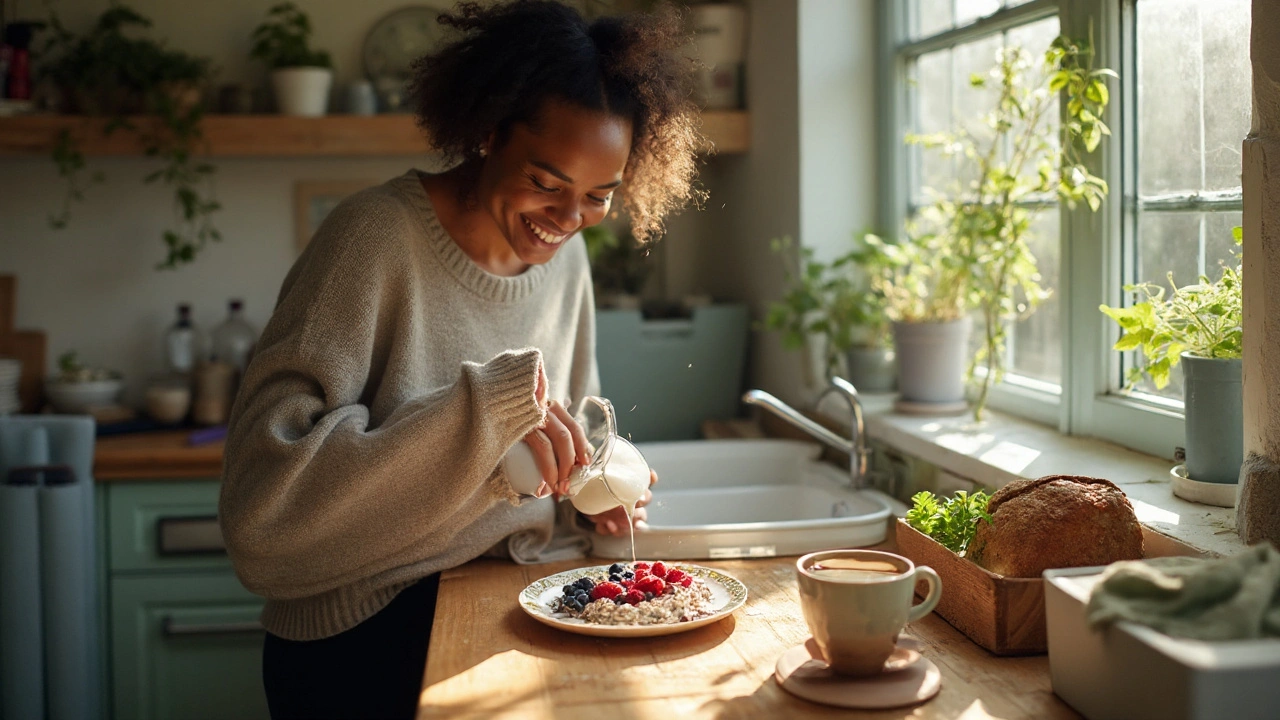Fiber: How a Few Simple Swaps Improve Digestion and Energy
Want better digestion, steadier energy, and fewer cravings? Fiber does that. It’s a type of carbohydrate your body doesn’t digest, but it helps everything else work better. You don’t need fancy products—just smarter food choices.
Types of fiber and what they do
There are two main kinds: soluble and insoluble. Soluble fiber dissolves in water and forms a gel. It helps control blood sugar and lower cholesterol. Eat oats, beans, apples, and flax seeds for this. Insoluble fiber doesn’t dissolve. It adds bulk to stool and speeds up movement through your gut. Good sources are whole wheat, brown rice, carrots, and nuts.
Both types feed your gut bacteria. A healthy gut microbiome helps digestion, mood, and immune function. If you read about gut health or the gut-brain connection, fiber is often the simple fix that shows up again and again.
How much fiber should you aim for?
General targets work well: about 25 grams a day for women and 38 grams for men under 50. After 50, aim for roughly 21 g for women and 30 g for men because calorie needs usually drop. You don’t need to hit it all at once—spread fiber over the day.
Start slow if your current diet is low in fiber. Add 5 grams a day for a week, then another 5. This lowers bloating and gas. Also drink more water when you increase fiber—fiber needs fluid to move through your system.
Here are reliable, everyday foods to get fiber without thinking too hard:
- Whole grains: oatmeal, brown rice, barley, whole wheat bread
- Legumes: lentils, chickpeas, black beans
- Fruits: raspberries, pears, apples with skin
- Veggies: broccoli, Brussels sprouts, carrots
- Nuts & seeds: almonds, chia, flax
Try swaps: choose whole-grain pasta, snack on fruit and nuts, or toss beans into salads and soups. A tablespoon of chia or ground flax in yogurt or smoothies adds a quick fiber boost.
Fiber also helps with weight control because it fills you up with fewer calories. It slows digestion so blood sugar rises more slowly. That means fewer energy crashes and less urge to snack on sugary stuff.
A quick heads-up: if you have conditions like Crohn’s, a recent bowel surgery, or certain strict diets, check with your clinician before making big fiber changes. Otherwise, most people benefit from adding more whole foods and fewer refined carbs.
Want a simple plan? Breakfast: oats with berries and chia. Lunch: a big salad with chickpeas. Snack: an apple and a handful of almonds. Dinner: grilled fish, brown rice, and steamed broccoli. Small changes like these add up fast.
Pick one swap this week and stick with it. Your digestion, energy, and mood will likely thank you.

Easy Ways to Improve Your Gut Health Today
Simple, science-backed ways to improve your gut health today-without supplements or drastic diets. Focus on fiber, hydration, fermented foods, and stress management for lasting results.
Read More
Boost Your Gut Health: Simple Steps for Strong Digestion
Learn practical steps to improve gut health, from fiber and probiotics to stress management and sleep, with easy daily habits and expert tips.
Read More
Surprising Benefits of Good Gut Health in 2025: Energy, Mood, Immunity
Good gut health boosts energy, mood, immunity, skin, and weight balance. Learn simple, science-backed steps, foods, and daily habits to build a happier gut.
Read More
Gut Health: Simple Steps for a Healthier You
Gut health affects how you feel every day—from bloating to energy levels. This article breaks down what really works when it comes to boosting your gut, from practical food swaps to easy habits anyone can follow. You'll get tips you can put into action tonight, without needing special supplements or fancy diets. Learn how small changes can make a big difference. You'll also find answers to common gut questions people never seem to ask out loud.
Read More